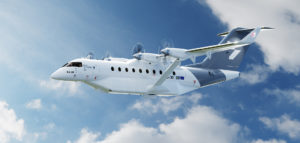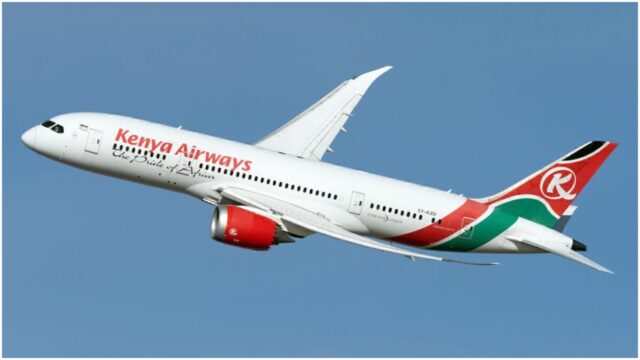Heart Aerospace: 2024 ‘crucial’ for development of ES-30

Heart Aerospace, the developer of the ES-30 regional hybrid-electric aeroplane, has seen a flurry of orders in 2023 – and the next 12 months are set to be “crucial” for the plane-maker.
Claudio Camelier, head of marketing, product strategy and market analysis, spoke to FINN about the progress being made, and where the company hopes to take the ES-30 in 2024.
Was 2023 a key year for electric flight development? How did Heart Aerospace push the sector forward?
Over the past year, we have evolved our organisation and our regional hybrid-electric airplane, the ES-30. We have acquired partners to work on several systems, like BAE Systems for batteries, Crane for power distribution and Honeywell for flight controls.
We’ve been selected as a partner by Air New Zealand and the government of Aland to develop a sustainable way of air travel together. We have grown our Industry Advisory Board with several important new members, all eager to create the ecosystem necessary to implement electric air travel.
We are proud to now have industry actors like KLM, Auckland Airport and Copenhagen Airport engaging in this important work.
What ‘predictions’ do you have for 2024 in terms of the electric flight? What milestones can we expect to be reached?
Next year will be crucial in the development of the ES-30. We will select key suppliers, with a focus on the hybrid power train, and we will mature our product as well as our company.
We will also be pushing policy makers across Europe and beyond to ensure they understand the potential that electric and hybrid-electric aircraft represent for sustainable regional connectivity and give these new technologies the same attention as SAF.
Both avenues are vital, and a balanced focus will ensure a more comprehensive and effective approach to decarbonising aviation.
What role can SAF play in the sustainable aviation mix?
While Sustainable Aviation Fuel (SAF) remains a crucial component in achieving net-zero targets, up to one-third of the decarbonisation effort in our sector can come from embracing such new alternative propulsion technologies. We know SAF will be in short supply and must be prioritised for long haul air travel.
New technologies such as electric aviation will be an important reliver in the demand for SAF and policy makers need to lean into this.
Furthermore, electric aviation can provide true zero emissions, it demands less renewable energy than PtL-SAF (Power to Liquid SAF) and it is cost effective on short sectors, allowing airlines to not only replace older regional aircraft but also expand their regional networks.
Is there enough investment in research and development for electric aviation?
Historically, aviation has not received significant research and development support from initiatives like the EU Innovation Fund.
As we bring forth a groundbreaking technology, we advocate for increased funding for electric aviation projects to accelerate their market entry.
Subscribe to the FINN weekly newsletter
















